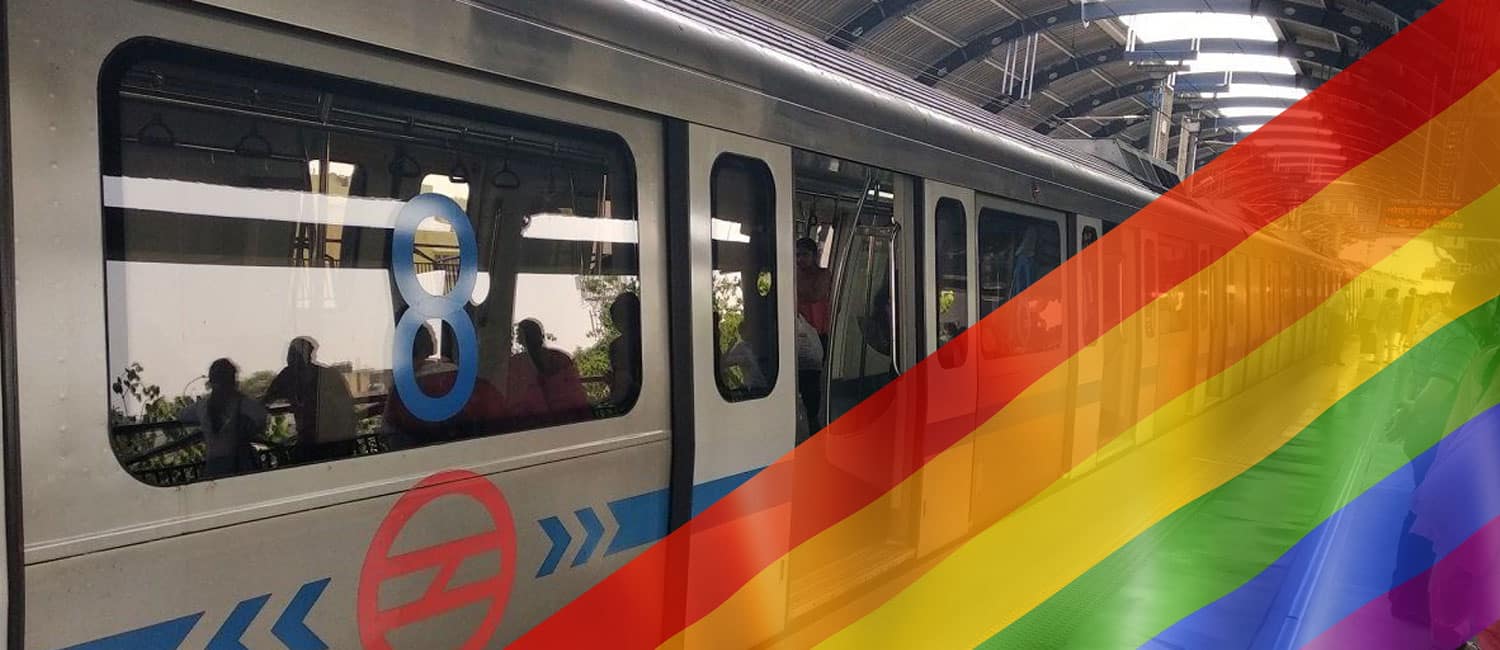In a first-of-its-kind initiative in Northern India, Noida’s Sector 50 metro station was declared to be renamed as ‘Rainbow Station’ on June 24. The purpose behind the renaming is to celebrate the spirit of the transgender community and spread awareness regarding the protection of transgender rights.
“The Sector 50 metro station of the NMRC, which would be dedicated to the transgender community will now be called ‘Rainbow’ station,” announced the press release published by the Noida Metro Rail Corporation (NMRC) Managing Director and CEO of the Noida Authority, Ritu Maheshwari.
“In this direction, a few actions have been planned like creating awareness among Metro commuters through messages or signages and announcements at the station and within train coaches pertaining to the transgender community. Also, there will be sensitization of existing employees on engaging transgender people at Metro stations post required training,” NMRC Deputy General Manager, Corporate Communications, Sandhya Sharma said while seeking suggestions on 21 June, from the individuals, NGOs, and stakeholders regarding the new name. She additionally mentioned that the probability of altering the restroom set-up and reforming the frisking facility in a transgender-friendly manner are being considered at the Sector 50 metro station.
“We have started the initiative to name the station after the transgender community with a noble intention to empower the community. We had invited suggestions from individuals and NGOs about naming the station to signify the essence of the community and honor their spirit. We have plans to employ them and also respect the sentiment,” Ritu Maheshwari added.
She believes employment opportunities may help to instill self-reliance among them and “…pave the way for their healthy inclusion and participation in society”. She cited the 2011 Census Report to mention that out of a total number of 4.9 lakh transgenders in the country between 30,000 and 35,000 are dwelling in the National Capital Region (NCR).
‘Rainbow’ signifies the usage of six vibrantly vivid colors including red, orange, yellow, green, blue, and violet in horizontal stripes. It is generally imprinted on flags, that were originally designed in 1978 as a distinct symbol of the struggle and pride of the Lesbian, Gay, Bisexual, Transgender, and Queer (LGBTQ) community, representing diversity and inclusivity.
Earlier, the authority had expressed its intentions to name the station as ‘SheMan’, commonly used to signify the transgender community. The name was reportedly suggested by the NMRC Board of Directors and various stakeholders including a few NGOs. The proposal met with stark objections and strong criticisms from the members of the community and parts of the civil society owing to the slurs it may have indicated against the community for ages.
“The term ‘She Man’ is derogatory. It means someone who is a mixture of male and female, as if half-male and half-female, and goes against the spirit of how transgender persons wish to define themselves. The term Thirunangai (man and woman), which was once accepted by the community in south India, was withdrawn in 2019. The Hindi translation uses the word ‘Ubhaylingi’ which may be suitable for intersex persons but definitely not for the entire transgender community,” explains Dr. Aqsa Shaikh, an expert in the field of community medicine, who identifies herself as a trans woman while speaking to The Quint.
Previously, in an attempt to empower the sexual minority, the Kochi Metro Rail Limited in Kerala had employed 23 transgenders in 2017. Though the metro services have been gravely disrupted for the past three months since the nationwide lockdown was declared in the lieu of the corona-pandemic, the officials are hopeful about restarting the metro operations soon. “We will start the operations on Aqua Line as soon as we get the nod from the government,” said Maheshwari.
Undoubtedly, the transgender community is one of the worst-hit during the coronavirus outbreak. The prolonged lockdown and the norms of social distancing are causing unemployment and greater health-risk susceptibility to the already vulnerable community. “A majority of the transgender community like a majority of the non-transgender community is working class. The idea of social distancing and working from home are very, very privileged ideas and this will essentially render a lot of people in transgender communities hungry and unable to sustain themselves,” says Dr. Bittu Kartik, an Associate Professor at Ashoka University and a queer activist.
“When it comes to an outbreak-like situation in terms of coronavirus when many patients are competing for limited healthcare resources, then naturally, one of the groups that get the least priority, in terms of access and availability of healthcare facilities, would be the transgender groups,” adds Dr. Shaikh.
Considering these underprivileges that the transgender community has been facing, the NMRC announcement is indeed a welcome move. Though it presents the community with a new ray of hope aspiring holistic inclusivity for years, it should be considered just as much their right. Despite taking the step forward for greater inclusivity, there awaits a long road ahead for the country and the society at large.


